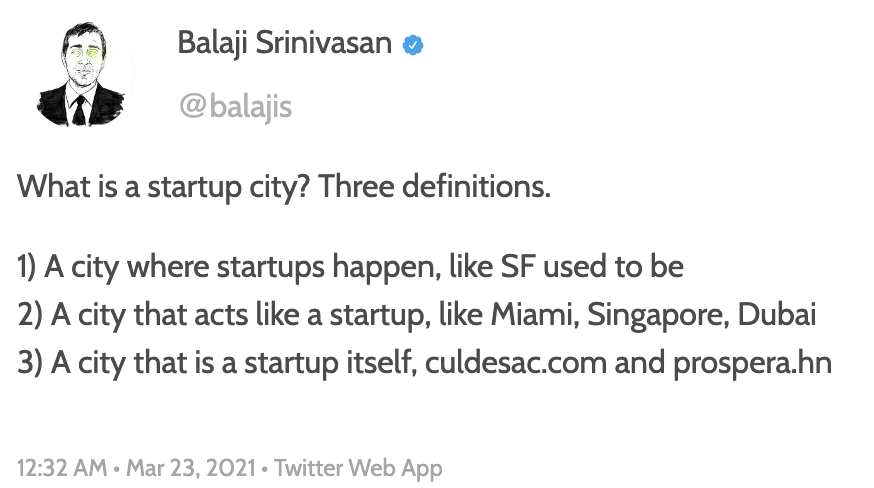
The consulting firm Adrianople Group has published a global map of startup cities that makes finding innovative cities and regions easy.
There has been extensive talk about “Startup Cities” – however these discussions lacked clear definitions, and in part due to the absence of definitions, lacked serious mapping efforts.
Your city lacks innovation?
Find a startup city on the new startup city map by @AdrianopleGroup pic.twitter.com/ILJj4V61dq
— BitcoinNews.com ⚡ (@BitcoinNewsCom) August 10, 2022
In March 2021, Balaji Srinivasan asked the question: what is a startup city? He gave three definitions:
1 – A city that attracts startups, like San Francisco, California or Austin, Texas
2 – A city that tries to act like a startup, like Singapore or Miami, Florida
3 – A city that literally is a startup, like Prospera, Honduras or Urbita, Brazil
Ivette Cano, the leader of the project, explained the purpose of the map:
“We wanted to create a map – an interactive directory – that allows you to see the most innovative ecosystems in the world and where the newests and most fascinating city developments are happening.”

The third type of startup city – a city that literally is a startup – has garnered significant amounts of attention over the past two years since the beginning of the COVID-19 pandemic.
Ironically, the most well-known examples are earlier stage projects. This is because these projects are more revolutionary in nature. However, starting in the 1980s, many emerging market real estate developers began building large private or semi-private cities.
For example, the Indian real estate firm DLF built the city of Gurgaon on farmland near New Delhi in 1983. Until recently, the city had fully privatized municipal services such as fire departments, roads, and waste management. The city now has a population over 1 million. It is home to major companies like Siemens, Coca-Cola, Pepsi, BMW, and Hyundai.
Recently, Prospera, in Honduras, has attracted a significant amount of media attention. Prospera is a planned resort city on the Caribbean island of Roatan, in Honduras. It is classified as a ZEDE – a legal entity which enjoys a wide variety of innovative regulatory incentives. Several buildings, such as a coworking space, are fully operational. Its investors hope that it will raise the bar for what startup cities can achieve in the future.
Traditional locations for startups have slowly lost their appeal. It is now up to startups themselves to come up with the answer to the question: where will startups locate in the future?
Honduras Launches ‘Bitcoin(BTC) Valley’ in the Tourist Town of Santa Lucia



